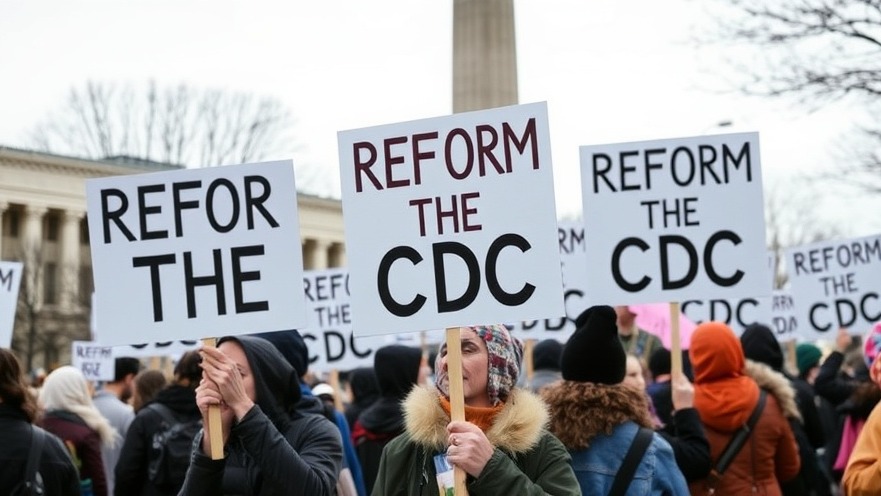
CDC Resignations: A Shaking Foundation for Vaccine Policy
The recent wave of resignations at the U.S. Centers for Disease Control and Prevention (CDC) has ignited pressing conversations regarding vaccine policies in our country. This week, senior officials - Debra Houry, Demetre Daskalakis, and Dan Jernigan - stepped down, citing grave concerns over changes instigated by newly appointed Health and Human Services Secretary Robert F. Kennedy Jr. The shifts in the agency's vaccine policy have not only raised eyebrows but also cast doubts on the integrity of recommendations made by the CDC going forward.
From Science to Skepticism: A Disconcerting Shift
The departures hold significant weight, considering they come amidst the controversial changes to the Advisory Committee on Immunization Practices (ACIP). With newfound advisers selected by Kennedy, many identified as vaccine skeptics, the resigning officials raised alarm bells over recommendations allegedly made without comprehensive data review. Houry, the CDC's chief medical officer, expressed concern that pre-determined outcomes undermine scientific inquiry: "You should never know in advance what you want the data to show." This alarming stance emphasizes the potential harmful implications of politicizing public health.
A New Era of Public Health Policy?
The impact of these resignations hints at deeper discord within public health agencies. While Kennedy maintains that his changes enhance transparency and minimize corporate influence, critics like Daskalakis argue that the policy overhaul fosters confusion and suspicion surrounding vaccines. “I took the Hippocratic oath... and I believe harm is going to happen,” Daskalakis emphasized, suggesting the potential for increased public distrust in vaccination efforts at a time when health recommendations are critical.
The Ripple Effect: How States are Reacting
In light of the upheaval at the CDC, various medical organizations and states are proactively creating their own vaccine guidance as the autumn respiratory illness season approaches. This fragmented landscape may exacerbate communication issues surrounding vaccine uptake, with the FDA's recent decision to narrow COVID-19 vaccine eligibility only heightening concerns about insurance coverage and public access.
Shifts in Leadership: A Cautionary Tale
The abrupt removal of CDC director Susan Monarez further illustrates the administrative discord. While the White House claims she was terminated for legal reasons, her attorneys contest this narrative. Monarez has reportedly tried to restore transparency within ACIP, but her efforts were thwarted by HHS. Houry claimed, “She wanted to have engagement and transparency... but [was] told those couldn’t happen.” This disruption in leadership raises critical questions about the future direction of U.S. public health responses amid ongoing global health threats.
Future Implications and Public Trust
The resignations signal not just a staffing issue but a potential crisis in public health policy that could lead to decreased vaccine trust. Daskalakis warns, “I believe [Kennedy’s] aim was to create chaos... and then over time... demonstrate that there's less need” for federal vaccine support. This manipulation of public health narratives poses risks to community health, especially when misinformation can quickly sway public opinion.
A Call to Engage
This tumultuous chapter in CDC history calls for civic engagement to uphold the integrity of public health policies. Citizens are urged to voice their concerns or support for transparent scientific processes as we navigate an increasingly complex health landscape devoid of established trust. Knowing the rationale behind recent changes is vital; after all, our health decisions can impact the wider community.
Conclusion: The Importance of Staying Informed
As shifts occur within government health agencies, it is imperative to stay informed and engaged with current national news. Keeping watch on developments about vaccine policy not only allows one to make better personal health decisions but also contributes to the collective effort of fostering a well-informed and healthy society.
 Add Element
Add Element  Add Row
Add Row 



Write A Comment